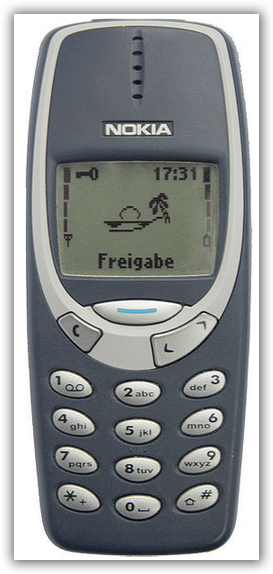aNewDomain.net — Microsoft’s announcement today that it is buying Finland smartphone company Nokia for $7.2 billion and change is hardly a done deal. Standing in the way of the proposed Microsoft Nokia buy? The country of Finland, for one, even though the prime minister and other officials are giving some lip service to the idea. It’s just lip service. And it won’t go far.
Nokia is Finland’s single largest private company. It employs more Finns than any other outside of the government itself. And more importantly, Nokia holds and is in the midst of licensing incredibly important standard essential patents in the telecom biz. The deal will make Microsoft, which hardly had any mobile smartphone patents just a few years ago, the biggest single player in the world in terms of mobile telecom IP. Nokia is licensing its IP portfolio to Microsoft for 10 years as part of the deal and is assigning its valuable Qualcomm license arrangement to Microsoft, too.
The US Department of Justice (DOJ) is going to lay some hate on that.
If the deal goes through, Nokia becomes Microsoft’s nuclear weapon in the patent wars. If the Finns let this go through, odds are the U.S. DOJ won’t allow it for exactly that reason.
Backing up, the firm and its employees have been bitter about Microsoft’s guiding role in it ever since 2011, when ex Microsoft exec Stephen Elop announced to the world he, as new Nokia CEO, was killing Symbian and Meego in favor of Microsoft Windows Phone.
So far the Finnish Prime Minister speaks favorably about the deal, but his tune will change once Nokia’s well-heeled investors get a hold of him. The U.S. DOJ won’t be too happy about it, either, as awareness sinks in about Microsoft’s roundabout way of owning some of the most important patents in mobile via the Nokia license and the Nokia-Qualcomm assignment.
If the deal goes through, Microsoft will be the single largest holder of intellectual property related to mobile telecom. Microsoft already holds a substantial stake in multi-billion dollar patent assertion entity Intellectual Ventures, the Canadian troll Mosaid, the AOL patent portfolio — and the former Nortel patent portfolio known as Rockstar … in other words, as a result of the Microsoft Nokia buy, Microsoft will be stronger in mobile telecom intellectual property ownership than any other company in the world. It will CONTROL huge numbers of standard essential patents and related implementation patents, patents it can use to derive a competitive advantage over companies like Google and Samsung. You have to wonder who will be controlling the remaining Nokia patents given that Microsoft has been controlling Nokia for two years already. Anyway you slice it, this is an amazing feat for a company that was not even in the telecom business a few years ago,”
says Tom Ewing, an IP strategist and attorney who routinely consults with the World Intellectual Property Organization.
And now consider the May 2012 class action lawsuit against Nokia. The suit, since closed for reasons not made public, claims that Microsoft’s so-called $2 billion U.S. investment in Nokia and its installment of MS exec Elop in 2011 was fraudulent.
The suit claimed that Microsoft duped Nokia leadership and stockholders into thinking that dropping Symbian and Nokia’s highly anticipated MeeGo operating system in favor of the Microsoft Windows Phone OS would result in an upside for Nokia. Nokia’s fortunes, rather, steadily declined since that 2011 deal.
Scroll below for a copy of the class action complaint, which specifically named Elop and Nokia’s chairman Timo Ihamuotila.
Below is the Nokia 3310, one of the world’s most popular smartphones in from 2001 to 2003.

Image of the Nokia 3310 Blue: Wikimedia Commons
Elop, called a Microsoft trojan horse back in 2011, is returning to Microsoft as part of the deal along with various other Nokia execs. Nokia sources talking to aNewDomain.net have repeatedly expressed bitterness at the 2011 deal.
This current bid is expected to close in the first quarter of 2014
According to reports, the board of Nokia met more than 50 times after Microsoft made the offer for 5.44 billion Euro, chump change compared to Nokia’s historic value as maker of some of the world’s most successful smartphones and holder of its hefty patent portfolio full of standard essential telecom patents.
If it does go through, Nokia employees will continue to be miserable. Ericsson will be hugging itself. And Microsoft patent arsenal will up the ante in the mobile patent wars, as Nokia has been working toward completion of licensing its enormous pile of standard essential panels.
The U.S. Department of Justice, knowing that Microsoft will be the one conducting that licensing, might stand in the way if this deal even if the Finns allow it.
Check out the class action suit filed on behalf of Nokia stockholders last year, below.













But the patents are specifically excluded from the deal, right?
Not all of them! Not the main ones. Not the ones they own with Nokia in their investment with Intellectual Ventures.
Nokia will “retain” its patent portfolio — but terms say it gives Microsoft a 10-year license to its patents when the deal closes. Microsoft owning the licenses allows them to do use them to privateer, license, litigate, whatever. Gina
This could slip through the DOJ based upon Google owning Motorola. I could imagine MS saying what about that deal? The biggest thing in favor of a all out no way is that MS has a history of acting like a 2 year old having a temper tantrum when it’s all and mighty.
You have a point, Robert, however — the DOJ is actively in the process of coming up with a way to regulate patent assertion entities, such as the one Microsoft and Sony created, the multi billion dollar Intellectual Ventures. Having patents on stuff you yourself didn’t create and then litigating or licensing, as IV does, is deemed by many experts as anti-competitive under FTC guidelines. Check out the DOJ site. It won’t be happy with an IV owning company suddenly, through a buyout of a company it already has allegedly caused litigation trouble with (ala Mosaid), becoming the biggest telecom patent holder. Watch.
There’s a lot of misinformation in this article. Example, “The deal will make Microsoft, which hardly had any mobile smartphone patents just a few years ago”. What’s your source for this? Microsoft has lots of patents that read on Android and mobile specifically. Also, on what basis will the DOJ intervene in what essentially is a patent licensing deal, not a patent portfolio purchase? I agree that the net result is that Nokia is now likely to double down on monetizing its extensive patent portfolio, which could well include litigation against infringers. But how does that make them MS’s nuclear weapon? They were already enforcing their patent ownership, as most of the leading smartphone players do. This is primarily an issue for Android, but then that’s primarily Google’s fault, right? They knew their product infringed the IP of many players but shipped it anyway instead of entering into licensing deal with other players. Re Tom Ewing’s comments, I’m not aware of MS having any direct stake in Intellectual Ventures, far less a “substantial one”. Did you do any fact checking to verify that statement before including it? And the class action lawsuit is just ridiculous. Nokia was in trouble *before* Elop came. And MS could have made whatever claims it wanted, ultimately it was Nokia’s board which determined their strategy. And they’ve been pretty clear about why they opted for WP over Android. Some will agree, some won’t. But that was the call Nokia’s board made. All and all this is one the dumbest and most biased articles I’ve read recently. You seem to have started with a conclusion and them just assembled the “facts” to suit your preconceived view.
[…] While Finnish officials and Nokia execs are giving the deal lip service, Finland’s approval of… […]